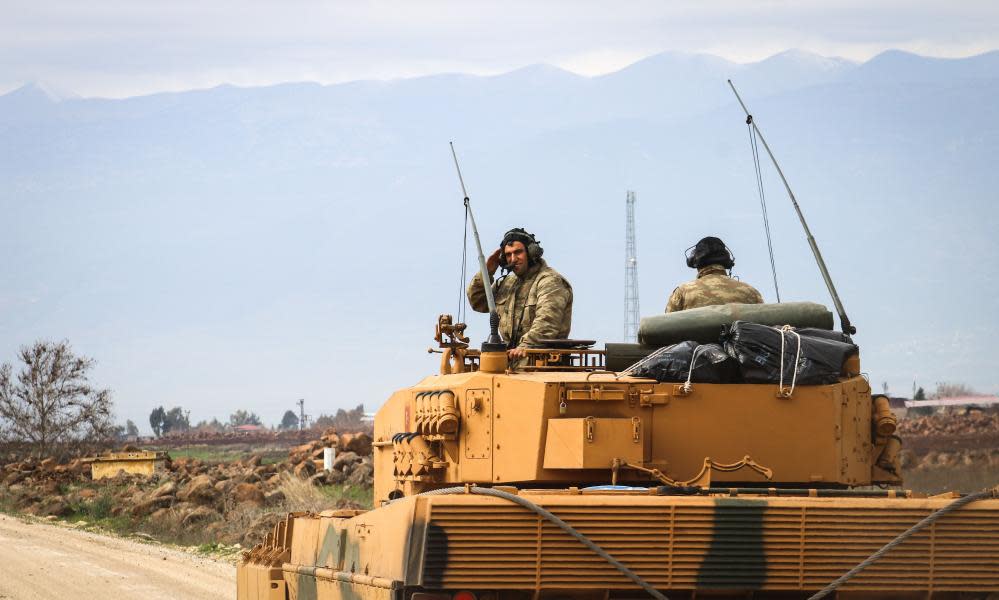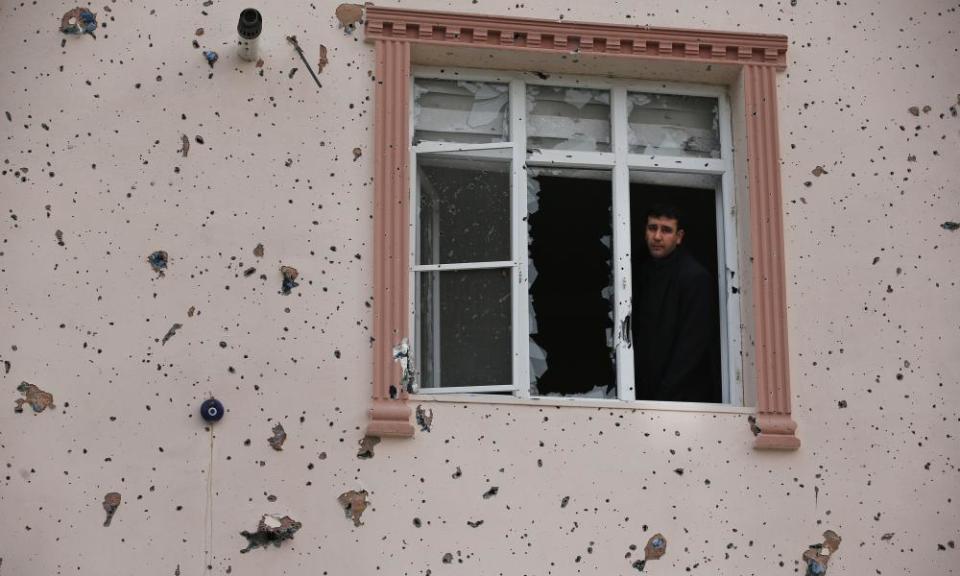Turkey starts ground incursion into Kurdish-controlled Afrin in Syria

Turkey said it had begun a ground incursion into the Kurdish enclave in Syria known as Afrin a day after intense aerial bombardment that signalled the opening of hostilities in a new phase of Ankara’s involvement in the war across the border.
The launch of the ground campaign by the Turkish military on Sunday, alongside Syrian rebel factions under Ankara’s tutelage, came on the second day of a military offensive called “Operation Olive Branch” by the Turkish government, with dozens of airstrikes hitting more than 150 targets in the Kurdish-dominated district from late on Saturday afternoon.
Kurdish militias shelled the Turkish province of Kilis across the border in response. A spokesman for the Kurdish militias that control the district said they had blocked the Turkish army-led initial attempt at a ground incursion on Sunday morning.
“The Turkish army and its Syrian agent factions have not entered one inch of Afrin district inside Syria,” the spokesman claimed.
Turkey said it was launching the Afrin campaign to clear out the People’s Protection Units (YPG) and its political arm, the Democratic Union party (PYD), from the district. Ankara regards them as part of the Syrian wing of the Kurdistan Workers’ party (PKK), a designated terror group that has fought a decades-long insurgency against the Turkish state.
Ankara has been angered by the YPG’s expansion in northern Syria and its alliance with the anti-Islamic State US-led coalition, which has backed and later armed the group as it spearheaded offensives against Isis in the region. The Afrin offensive came after a US announcement that it would train an army to patrol Syria’s borders that would include the YPG as a key component, which Turkey said was a national security threat.
Turkey intervened in the war in Syria in August 2016 to limit Kurdish expansion west of the Euphrates river and to drive Isis, which controlled key border towns, from the area as well. The Afrin offensive was launched after Ankara apparently obtained Russia’s blessing, dispatching its chief of intelligence and the army’s chief of staff to Moscow in recent days.
It takes place against a backdrop of deep-seated tensions with Washington and continuing military losses for the Turkey-backed opposition in Syria, where Bashar al-Assad has inched closer to a military victory in the seven-year conflict, and peace talks brokered by Russia, Turkey and Iran have gone nowhere.

Turkey sought to couch its military offensive as being both linked to the YPG’s presence in the area but also as a measure to protect the local populace from what an official described as an “authoritarian” group and almost as a nation-building exercise.
But the move has provoked fierce debate within Syria’s opposition, which has enjoyed broad Turkish backing for years. Some see it as a diversion from a campaign by the Syrian government against Idlib, the last province under rebel control, describing the Syrian rebel factions taking part in the offensive as mercenaries to Turkey’s will.
Others see the offensive as a necessary measure against the YPG, which they accuse of attempting to carve out a statelet in northern Syria, displacing local Arabs and which they believe to be secretly in league with the Assad regime.
Turkish officials have pledged to pursue a campaign with limited civilian casualties, but said they believed the Kurdish militias would use human shields to protect key installations. A spokesman for the PYDsaid Turkish airstrikes had killed six civilians on Saturday and wounded 13 others, in addition to killing three fighters from the YPG and its auxiliary female militia, the YPJ.
“The Turkish army wants through these military operations to inspire fear among civilians to force them from their lands and lay the ground for occupying the city,” the YPG branch in Afrin said in a statement, adding that it held both Ankara and Moscow accountable for the “massacres that will be committed in Afrin”.

 Yahoo News
Yahoo News 
